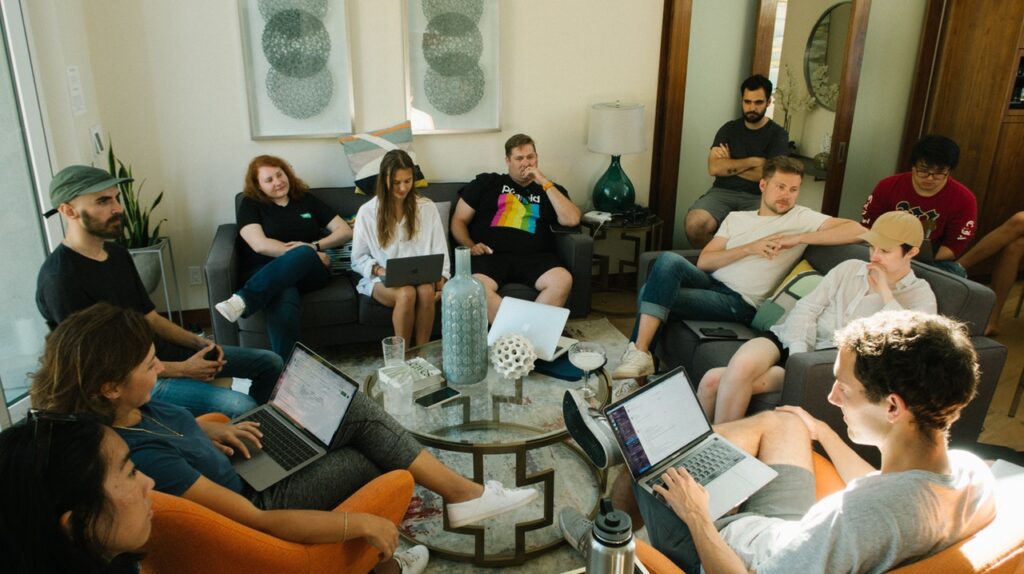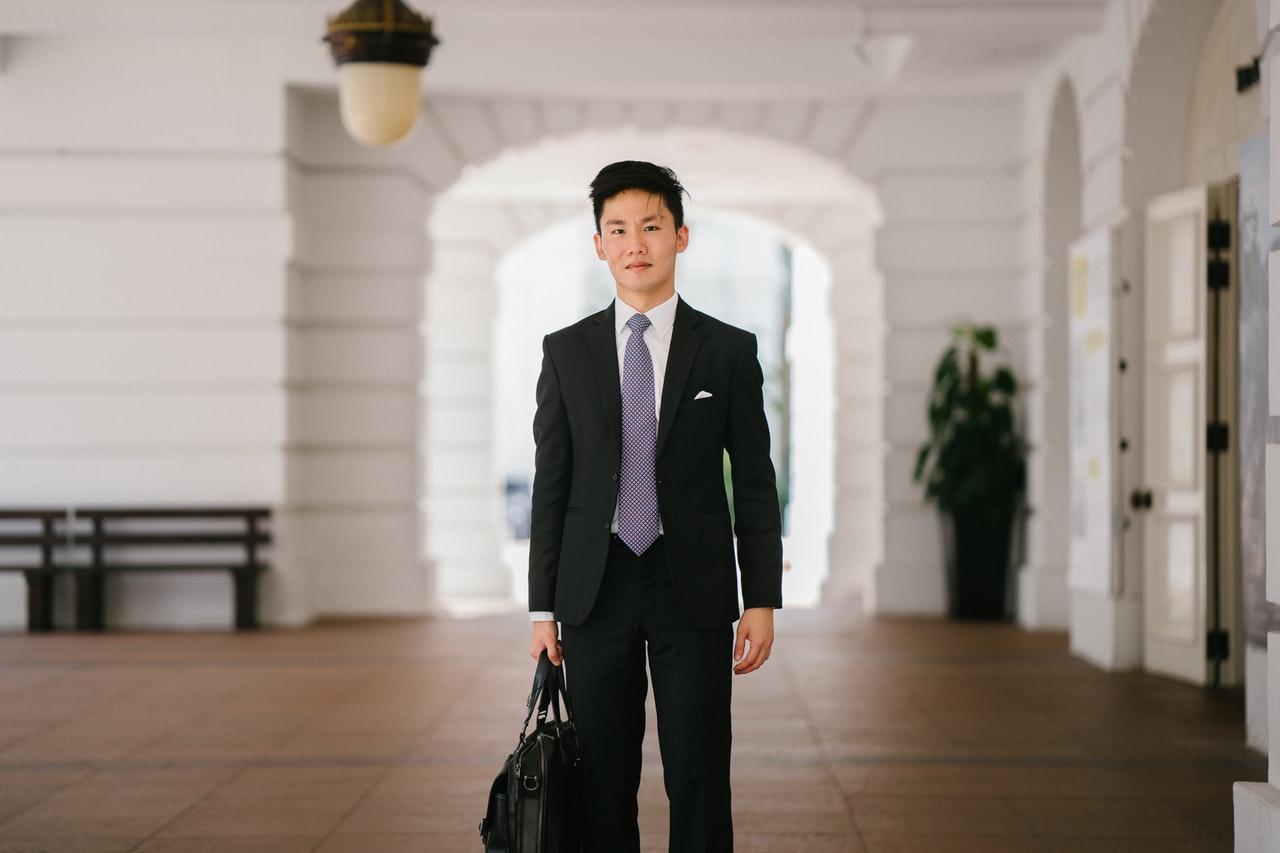There’s a reason why change management experts are in such high demand. The reality is that changing cultures and blending cultures in any context is a really difficult thing to do. Around 75% of any attempts people make to change organizational culture end in failure.
Within the context of global leadership, the battle is fought on two main fronts. Global leaders that parachute into a new environment as a ‘foreigner’, must possess excellent interpersonal skills as well as a cultural sensitivity that helps to bring everybody together behind a new vision and direction.
It’s no surprise that very few people get it right. Let’s use the following case study to look at ways global leaders can effectively do this.
We begin with a summary…
Contents
The Inciting Incident
This case study follows the journey of a French fragrance company Deronde International, looking to expand their operations in emerging markets and stabilize or continue to grow in their established markets.
Enter Jianguo, a sharp-minded man with scientific flair and an excellent track record of producing hit fragrances that took the Eastern market by storm. He had the advantage of understanding the whole process of fragrance production having been promoted from managing a fragrance lab. This, paired with his ability to turn a small market into the fastest-growing subsidiary of Deronde, made him a force to be reckoned with.
In the race to win the role of Senior Vice President of Global Product Development, Jianguo managed to finish first in front of his colleagues that were favorites to get the promotion. He had a few misgivings about the different ideas he had, being a little concerned that his colleagues wouldn’t be receptive to his new ideas.
Nevertheless, he arrived in Paris with his wife ready to take on a new challenge.

How Things Progressed
Jianguo went for a welcome lunch with his new colleagues and the CEO. They only seemed to be interested in ‘small talk’, so Jianguo took the opportunity to get straight to business. There were meetings to organize, ideas to be curated. In Jianguo’s mind, he just wanted to be left to his work. Why all the idle pleasantries?
His colleagues and Alain, the CEO, on the other hand, found Jianguo to be very abrupt. Jianguo had lots of ideas for the emerging markets; everybody knew that he would come with those ideas. He’d talked about them briefly at his welcome lunch. But the first meeting the day after with the entire executive committee went down like a lead balloon.
Jianguo had a long list of ideas and requests. Lab expansions, requests to acquire research facilities, fragrances for men and even a new skincare line. Different scents for the eastern markets. Ambassadors appropriate for each new market.
But nothing about cultivating the existing western market. Awkward exchanges followed. Yves, one of the other executives who had been in the running for Jianguo’s position, wasn’t too keen on drawing so much focus away from the existing customer base. Alain already had an existing relationship with Yves and so was happy to listen to the feedback. After a brief discussion about financials, Alain called the meeting to a close early. Jianguo couldn’t understand why people weren’t getting on board with his ideas.
Over the next week, his colleague Yves came by to discuss some ideas; he’d tried to brainstorm some ways to honor both cultures whilst staying true to the Parisian culture that was an essential part of the Deronde brand. Jianguo often shut down his ideas without further conversation. As a result, the other executives began talking and planning amongst themselves. They’d be cordial to Jianguo’s face, and he would hear rumors of meetings being organized, but he was never notified.
Elise came by with some feedback; as the only female on the team, she often felt excluded too. But as a word to the wise, she said that Jianguo needed to be willing to compromise; a ‘my way or the highway’ approach was extremely unlikely to work here. His only way of breaking the ice would be to get on board with the culture in Paris and then try to change things as best he can from that standpoint.
The Final Situation
The final situation saw a very fragmented leadership team. The CEO had given everybody 10 days to either sink or swim; Alain was ready to come back from his holidays to a clear strategy of how things were going to move forward. Would Jianguo get everybody to settle on a strategy or would he go back to China and regional management?
Challenge 1: Lack of Cultural Intelligence
The first glaringly obvious issue is the clear lack of cultural sensitivity roaring from both sides. This case study is really interesting because when we look at true cultural intelligence, we see that a huge part of that process is separating culture from the idea of hierarchy.
All of us at times can be defensive of our culture. It’s a part of who we are and it’s not wrong to be proud of what makes you who you are. However global leaders need to be able to see value in all the cultures they come into contact with. It’s not about championing one over the other, it’s about weaving all the cultures together into a complementary tapestry that draws out the advantages for all involved.
The French Executives
With a desire to double down on the success of the emerging markets, Jianguo’s appointment was meant to combine the interests of both the western and eastern markets. Jianguo’s experience in the eastern sector gained while working for a French company, is probably what gave him the edge over his French colleagues.
The problem is that Deronde is a classic case of the dangers that come when global business functions and projects don’t share information. Separating their business functions based on location meant that there was little opportunity for collaboration between the senior executives across the world. This meant that all of the senior French executives had no idea about the culture of the place where Jianguo was coming from and he, in turn, had no idea about the nuances of French culture. Essentially there was an expectation that he, having worked at Deronde, would seamlessly integrate into Deronde’s ‘Frenchness’.
We’ll discuss Jianguo later, but he essentially walked into a very cold, awkward situation. French people are very proud of their culture and in many cases due to the history of that nation, it is not uncommon for them to feel that in certain matters, ‘the French do it best.’ That attitude is clearly present in the way they respond to ideas Jianguo puts forward, and there is no attempt by the CEO to prepare the way for a collaborative style of working where all opinions are valid and all cultures are gracefully accounted for whilst looking for a common thread that everybody could unite behind.
As a result of this, every idea put forward felt like an attack on their existing base. The response was to alienate Jianguo which decreased his chances of success and held the project back right from the get-go.

Jianguo
Now we turn our attention to Jianguo. Jianguo ultimately was appointed to this role because he has the capacity to be the bridge between all regions where Deronde operates. Similar to his French colleagues, he arrived with a sense of cultural superiority. His attitude made him dismissive and difficult to approach.
The reality is that in his preparation to move to Paris, he did not think it vital that he familiarise himself with French culture. He expected to ride the wave of his authority to rush his ideas into the company without honoring what already existed. So you have the proud French executives on one side, immovable in their attachment to maintaining the ‘spirit of Paris’ in their products. You then add an immovable Jianguo, passionate about furthering emerging markets and eager to shake up the status quo.
You guessed it. There was no progress at all.
Jianguo then found himself to be entirely confused as to why it is that nobody was responding to him. His attitude, unfortunately, became increasingly petulant as time progressed. His ideas weren’t necessarily bad, but because he completely lacked understanding about French culture, his delivery was poor and people struggled to see the bigger picture of his ideas. He also completely discounted the established market in order to ‘fly the flag’ for his nation and make everybody proud.
The trouble here is the distinct lack of balance. If Jianguo had been willing to temper his sense of national pride, with a love and appreciation for French culture, his whole energy and way of dealing with his peers would have been totally different.
All in all, everybody could have done better here. We’ll look at ways they could have fixed this later.
Challenge 2: Low Levels of Interpersonal Competency
Global leaders have to master so many different competencies in order to succeed. Interpersonal competencies are like baking powder in a cake; it’s difficult to quantify what baking powder does short of the fact that it helps the cake to rise, but you’ll be left with a pancake of pastry if you don’t include it.
Interpersonal competence includes the ability to communicate effectively. It includes the ability to empower the people around you. It includes not just teamwork but teaming, which is the art of building a team even when you know that lots of things could change. It’s the ability to trust your team members and draw insight from those around you even as they draw insight from you.
This point falls almost exclusively on Jianguo here. This is only a short case study, and there is no doubt that Jianguo has all the makings of a very capable global leader. But here, his levels of interpersonal competence is very, very low. There was no attempt to get to know his colleagues or build a foundation of trust and collaboration. There was no discussion around existing priorities. There was no attempt to build a team at all; in fact, feedback was summarily dismissed.
The reason why there was no evidence of Jianguo’s interpersonal competence level, is because he appeared to have very little intention to involve others in moving the company agenda forward. He wanted to be a clear superstar. The person who everybody held up as the man responsible for single-handedly turning around the fortunes of Deronde, by tapping up emerging markets for new revenue and explosive growth in market share.
But no man is an island.
More often than not, ideas that are shared go through an invaluable process of refinement until they become solid, actionable strategies that move projects forward. Jianguo decided to play his cards close to his chest, receive no input from his colleagues and base his business decisions on a chat he was having with his niece.
He really did let himself down in this regard; instead of creating an open, empowering environment, where everybody felt valued and a part of the vision and the success to come, people felt pretty awkward. They became unwilling to share, and because there is only one of Jianguo and more French executives, he ended up becoming very isolated and confused.
Having looked at the two biggest problems with this whole scenario, there are definitely some points of learning to be drawn out.
Solution 1: Cultural Sensitivity for Everybody
Everyone at Deronde in all subsidiaries should have had opportunities to work cross-culturally. Engaging with one another in this way would help to build a cohesive company culture that celebrates all the diversity within it. When done well, the awkward and quite frankly damaging cultural superiority would dissipate. We say, good riddance to bad rubbish in this regard; a cultural superiority complex robs so many organizations of the new ideas that could cause the explosive growth they are looking for.
Practical applications of this could include the creation of a program where executives work in different regions for a period of time. They get to experience the culture and see how consumers interact with their products. Imagine all the different ideas that would come out of that — it’s an absolute goldmine for anybody interested in product development.
They could make sure to see each other biannually for team retreats so that they can build that sense of trust and unity outside of a competitive work environment. Discuss ideas in a relaxed setting and build the kind of strong bonds that make successful teams.
The important thing to note here is that this kind of commitment to diversity needs to come from Alain, who is the CEO, and be filtered downwards into every department and level of the organization. Although he wasn’t in any way unkind to Jianguo, it was clear from the start that he hadn’t made room for him either. All of them were unprepared to work with someone who was culturally different from them and you could sense the tension from the beginning.
For Jianguo specifically, he really should have invested time understanding Parisian culture. Not because it is better, but because the principles of Parisian culture drive the voice, look, priorities and overall style of the Deronde brand. In order to see what can be changed or what new ideas can come out, you have to understand the foundation.
The good news is that Jianguo is right at the beginning of his tenure as Global Head of Product Development, so there is time to make this right. He can link in with his colleagues or find an external mentor who can help him and his wife acclimatise to and enjoy Paris. But unfortunately, his work has been made harder because people now have a relatively poor impression of him and his ability to get some traction and support behind his ideas.
Had he taken the time to become more culturally aware of his surroundings, it would have automatically activated his interpersonal competence.
Let’s take a look at what could have been done differently there.

Solution 2: Jianguo’s Interpersonal Competence
Jianguo’s approach was to continue as he did in China where he did everything himself and took all the credit himself. In Paris, he entered into a much flatter structure where roles were more loosely defined and strategies were a team effort. Here are some things he could have done differently:
- Keep Calm and Get To Know Your Colleagues — Jianguo could have relaxed a little bit at his welcome lunch and used the time to get to know his new colleagues. What projects were they working on, did they have families in Paris? How long had they been in the industry? He also could have opened up a little bit about himself and his family and started work on building that commonality with his colleagues.
- Make Teaming A Priority - He should have gone with an open mind to build a strong team that would help him not only tackle his passion of increasing the market share in emerging markets but also work on lifting the numbers in the western market. He is only one man. And whilst emerging markets are his forte, his task was not just to tackle those markets. His job was to attend to the struggling numbers in Deronde’s established markets too. Had he been more empathetic and attentive, he would absolutely have seen that this was a priority too and he could’ve taken the opportunity to draw lots of different insight from his new team.
- Find An Ally - Let’s say that Jianguo had arrived and everybody immediately took a dislike to him even though he’d done all that we’ve mentioned so far. He was culturally sensitive and really open, but because of office politics and people being angry about not getting the job, there was a little animosity. In the reading of the full case study, you’ll notice that Elise tried to give him some feedback. Instead of rejecting that insight, Jianguo should have been eager to receive it. Nobody else seemed willing to help. So for global leaders going into challenging dynamics, this is an invaluable lesson. Find your allies and the rest will follow as things start to move and the successes start to roll in.
To conclude, global leaders have a responsibility to internalize the principles of interpersonal competence and cultural sensitivity if they wish to be effective in their work. Whilst it is fair to observe that existing teams should be more receptive to new leadership, that isn’t really a realistic expectation based on human behavior. People resist change. So global leaders must be prepared to face this kind of resistance and have the skills to turn that resistance into loyalty, creativity, and excitement for all that is to come.
What do you think about Jianguo’s case? Do you think you’ve got what it takes to be a global leader in such a challenging environment? Test yourself and see how well you score. To keep up to date with all the techniques that’ll help you on your journey to becoming a fantastic global leader, sign up to our weekly newsletter; you’ll get all these insights delivered straight to your inbox.

